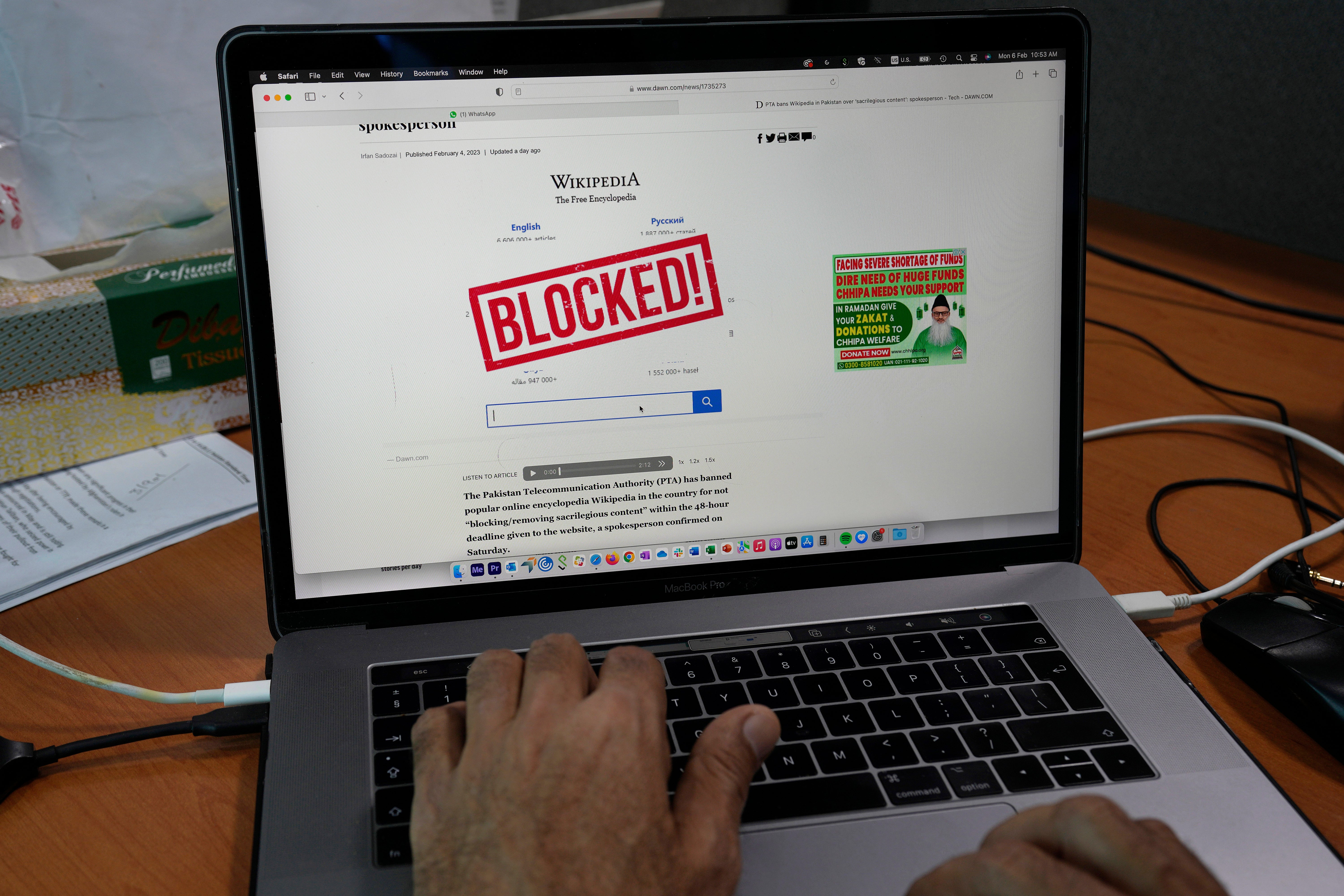Wikipedia again up and running as Pakistan lifts ban on site
Pakistan has lifted its ban on Wikipedia services that were blocked last week by the country’s media regulator for not removing purportedly blasphemous content that purportedly hurt the sentiments of Muslims

Your support helps us to tell the story
From reproductive rights to climate change to Big Tech, The Independent is on the ground when the story is developing. Whether it's investigating the financials of Elon Musk's pro-Trump PAC or producing our latest documentary, 'The A Word', which shines a light on the American women fighting for reproductive rights, we know how important it is to parse out the facts from the messaging.
At such a critical moment in US history, we need reporters on the ground. Your donation allows us to keep sending journalists to speak to both sides of the story.
The Independent is trusted by Americans across the entire political spectrum. And unlike many other quality news outlets, we choose not to lock Americans out of our reporting and analysis with paywalls. We believe quality journalism should be available to everyone, paid for by those who can afford it.
Your support makes all the difference.Pakistan lifted its ban on Wikipedia services before dawn Tuesday, after the country’s media regulator blocked the site last week for not removing purportedly blasphemous content, claiming it hurts the sentiments of Muslims.
Prime Minister Shahbaz Sharif ordered the unblocking late on Monday, according to a government statement. The site was blocked on Friday by the Pakistan Telecommunication Authority, after a deadline expired that Pakistan gave to Wikipedia to remove the controversial content.
The ban drew criticism and many Islamabad’s action, saying it was a blow to digital rights and deprived the public of the right to seek knowledge.
As anger grew, Pakistan's Information Minister Marriyum Aurangzeb said on Monday that Sharif's five-member committee had looked into the matter and ordered Wikipedia services be restored immediately.
The government has not provided any explanation or details about the content it deemed anti-Islam, and the media regulator never explained what content was purportedly hurting Muslim sentiments in Pakistan.
Under Pakistan’s controversial blasphemy laws, anyone found guilty of insulting Islam or its figures can be sentenced to death, although the country has yet to carry out capital punishment for blasphemy.
But even allegations of the offense are often enough to provoke mob violence and even deadly attacks. International and domestic rights groups say that accusations of blasphemy have often been used to intimidate religious minorities and settle personal scores.
The Wikimedia Foundation welcomed the lifting of the ban. Its statement said the lifting of the ban “means that the people of Pakistan can continue to benefit from and participate" in the growth of a global movement “to spread and share knowledge that is verified, reliable and free."
In the past, Pakistan briefly banned TikTok twice for uploading immoral content. Also, in 2008, Pakistan banned YouTube over videos depicting the Prophet Muhammad, drawing angry nationwide protests as Muslims consider any physical depiction of the prophet blasphemous.